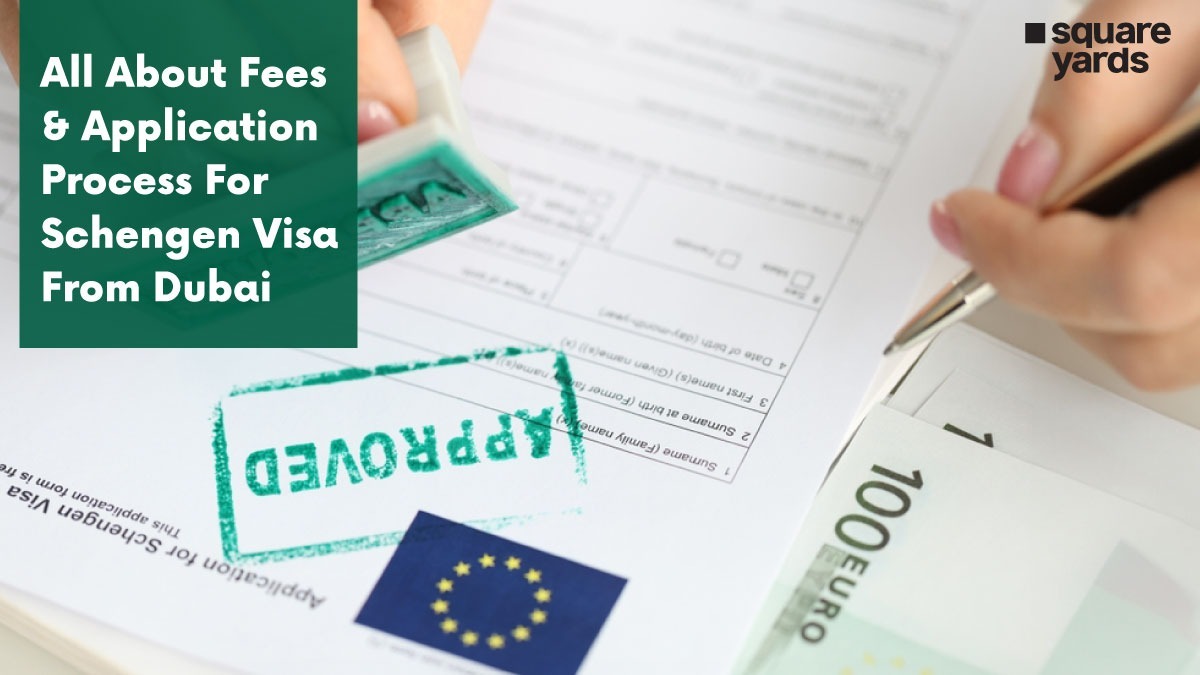If you’re a Dubai resident planning to visit Europe, obtaining a Schengen visa in Dubai is your first step. This visa allows you to explore any 27 Schengen Area countries for up to 90 days within 180 days. Whether you’re travelling for tourism, business, or family visits, understanding the Schengen visa process in Dubai is crucial to ensure a smooth journey.
Dubai residents can apply for a Schengen visa at the embassy or office of the Schengen nation they want to visit and stay in for the longest time. Generally, to apply for a visa, you must fill out an application form and present a valid passport, recent photos, evidence of accommodations, travel itinerary, financial means, travel insurance, and occasionally other papers like an invitation letter or employment verification. Since processing times can differ, applying well before the planned travel date is advised.
Learn About Schengen Countries and Schengen Visa

The Schengen Agreement, signed by 27 EU countries, allows seamless travel across member nations with just one visa. Under this agreement, internal border checks are minimised. Schengen visa holders—short-stay visa holders—can travel freely within these countries for up to 90 days within 180 days. This streamlined process is ideal for families, business travellers, and visitors, offering the convenience of visiting multiple countries with a single visa.
Here is a list of Schengen Countries:
- Austria
- Hungary
- Norway
- Belgium
- Iceland
- Poland
- Croatia
- Italy
- Czech Republic
- Portugal
- Denmark
- Latvia
- Slovakia
- Estonia
- Liechtenstein
- Slovenia
- Finland
- Lithuania
- Spain
- France
- Luxembourg
- Sweden
- Germany
- Malta
- Greece
- Switzerland
- Netherlands
Get A Schengen Visa From Dubai in No Time
Obtaining a Schengen visa in Dubai involves several important steps to ensure a smooth application process. Here’s a concise summary of the key actions you need to take:
- Determine the visa type: Identify whether you need a visa for travel, business, or a family visit.
- Choose the right embassy/consulate: Apply at the embassy or consulate of the country you’ll visit first or where you’ll spend the most time.
- Gather necessary documents: Prepare your completed visa application form, valid passport (with two blank pages and at least three months’ validity beyond your departure), two passport-sized photos, a travel itinerary, and proof of accommodations.
- Additional documents: Include a no-objection letter from your employer or proof of business ownership, proof of financial means (bank statements, salary slips), and travel insurance with €30,000 coverage.
- Schedule an appointment: Book your appointment at the visa application centre, embassy, or consulate.
- Attend the appointment: Bring all documents, submit your application, provide fingerprints, and pay the visa fee (€40 for children and €80 for adults, though costs may vary).
- Processing time: Expect processing to take 15-30 days, with possible delays during peak travel.
- Receive your visa: After processing, pick up your passport with the visa sticker.
ETIAS Requirements
The UAE nationals willing to travel to the EU countries visa-free must adhere to the new modifications from 2025.
You will soon require an ETIAS (European Travel Information and Permit System) permit to travel from Dubai to Schengen nations. Travellers from countries without visas, such as the United Arab Emirates, will need to use this system starting mid-2025. The ETIAS is a pre-screening procedure designed to improve security and simplify border checks; it is not a visa.
To apply for an ETIAS, you must pay a €7 application fee and complete an online application form. The process often only takes a few minutes, but if more checks are required, it occasionally takes up to 30 days. The ETIAS is valid for three years after it is approved or until the expiration of your passport. Ensure that you are applying 96 hours before your travel. People travelling below the age of 18 and above the age of 70 are not required to pay any fee.
When travelling, you must show your travel documents and ETIAS at border checks. Having an ETIAS greatly speeds up the process but does not guarantee admission. In addition, border officials could check other details, such as the reason for your journey, your financial situation, and the authenticity of your travel documents.
Eligibility Criteria for Schengen Visa from Dubai

To apply for a Schengen Visa from Dubai, an individual must be a citizen or resident of Dubai and must adhere to the following eligibility criteria:
- An individual must have a valid Dubai passport at least six months before expiration.
- The person must be financially stable to bear expenses in the Schengen zone.
- The applicant must have valid travel insurance for their entire stay in any of the Schengen countries.
- The applicant must have a valid reason for visiting the Schengen area, such as family, business purposes, or tourism.
Schengen Visa Application Requirements for UAE
Applying for a Schengen visa in Dubai for travel to Europe is simple. However, you must ensure you qualify for all the requirements and possess the relevant documents before applying. Here is a list of documents required to apply for a Schengen Visa.
- The first step is to fill out the application form with all the necessary details and personal information. You can complete the form online and print a hard copy later.
- Next, ensure you have a valid UAE passport with at least two blank pages left and no older than ten years.
- You will need two recent photographs of yourself (35mm x 45mm) with a clear face and a light background. Follow the Schengen visa photo requirements (head must take 70-80% of the photo)
- You will also require a valid UAE residence visa, which must be valid for three months after you intend to depart from the country.
- Before flying out, ensure you have a planned itinerary that includes hotel bookings and flights to help you navigate your stay and make it more convenient.
- Prepare a cover letter explaining your reason for visiting Europe and providing information on your accommodation. This will help speed up the process of obtaining a visa. You can also attach letters from your friends or the hotel authorities.
- You also have to provide financial proof to issue a visa. You may be asked to present your bank statement for the last six months’ salary slips, and if you are self-employed, you need business proof.
- You should also take out travel insurance to ensure health insurance throughout your stay in these Schengen territories. If you become ill or have an unexpected accident while visiting, you should have at least 300,000 euros in coverage.
- Lastly, ensure you pay the visa fee, which is a crucial step during the application process.
How To Apply For A Schengen Visa in Dubai?
-
Consulate or Embassy Where You Need To Apply
The first step in applying for a Schengen visa in Dubai is figuring out which embassy or consulate you must apply to. This condition will differ depending on which country you spend the most time in or your primary destination. If your travel itinerary includes stops in more than one Schengen country, send your application to the consulate or embassy of the country in which you plan to spend the most time.
If your stay is the same in each Schengen country, you should apply at the consulate of the country you plan to enter first. Every Schengen nation maintains an embassy or consulate in Dubai, or it might have a special visa application centre like VFS Global that takes care of applications on its behalf. Since rules and procedures differ slightly between countries, you must verify the precise requirements and procedures on the official website of the consulate or embassy of the nation you will visit. You can apply six months in advance from your planned travel date, whereas at minimum, there should be a gap of 15 days from the date of application and the date of travel.
-
Schedule an Appointment and Attend the Europe Visa Interview
Visit the official website of the relevant consulate or its designated visa application centre, such as VFS Global, to make an appointment for a Schengen visa in Dubai. Select a time that works for you, and make sure you have the required paperwork ready. Bring all your documents to the interview on the day of your scheduled appointment so that you can submit your application, provide biometric information, and pay the visa cost. During the interview, officials can ask about your trip’s purpose, schedule, and budget.
-
Wait For The Response From The Embassy or the Visa Center
After the interview, you need to wait for the consulate’s response. The duration of a response depends on the type of your stay and the number of countries you want to visit. The average processing period is 15 calendar days. However, depending on the details of your application and any additional checks needed, it may take up to 30 or even 60 days in certain situations.
During this time, the online monitoring system of the embassy or visa application centre normally allows you to follow the status of your application. Once a decision has been made, you will receive a notification to pick up your passport and the visa determination. To receive timely updates, make sure you enter valid contact information.
The Cost of a Schengen Visa From Dubai
|
Schengen Visa Category |
Visa Fee |
|
Adults |
AED 360 |
|
Children between 6 to 11 years old |
AED 180 |
|
Children younger than six years old |
Free |
|
Holders of diplomatic and service passports |
Free |
|
A family member of an EU/EEA national |
Free |
If applying through a visa application centre such as VFS Global, there may be additional service charges in addition to the visa price while obtaining a Schengen visa from Dubai. Adults must pay a regular visa fee of €80 (about AED 320), while children between the ages of 6 and 12 must pay €40 (around AED 160). Youngsters under six do not need to pay the visa fee.
Services include collecting biometric data; optional services like VIP lounge access or courier services may incur additional fees. If the visa application is rejected, these costs are not reimbursed. Always verify the most recent fee schedule on the consulate’s or the visa application centre’s official website.
Note: The fee for a Schengen visit visa from Dubai and the rest of the UAE is in AED and is subject to fluctuation in the EUR exchange rate.
Where to Apply For A Schengen Visa In Dubai
The Schengen visa application centres for UAE nationals are in Dubai and Abu Dhabi, which are the official VFS Schengen visa application centres. The Netherlands, France, Italy, and other members of Schengen process visa applications through this centre. With several sites throughout Dubai, VFS Global provides various services, including biometric data gathering, document submission, and appointment scheduling. Some countries, like Spain, depend on other service providers like BLS International. Look at the breakdown of centres where you can apply for a Schengen visa.
VSF Global offers visa services for the following countries
- Austria
- Italy
- Czech Republic
- Denmark
- France
- Germany
- Croatia
- Hungary
- Malta
- Netherlands
- Norway
- Finland
- Lithuania
- Portugal
- Sweden
- Switzerland
To visit countries like Poland and Slovakia, you must visit the Abu Dhabi embassies, the city’s main centres.
The location details for your visa application procedure centres in Dubai are:
- The VFS Global Application Centre: Joint Visa Application Centre, Wafi Mall, Level 2, Falcon, Phase 2, Umm Hurair 2
- BLS Centre in Dubai: Unit no 118-119, Mezzanine Floor, Al Khaleej Centre, Opposite Al Ain Centre, Mankhool Road, Bur Dubai
Common Challenges Faced By Dubai Citizens When Applying For Schengen Visit Visa From Dubai
When obtaining a Schengen visit visa, residents of Dubai frequently encounter several common difficulties. One significant problem is the rigorous paperwork requirements, which can cause delays or rejections due to incomplete or inaccurately filled-out applications and missing documentation. Another crucial aspect is financial proof. Applicants must show they have enough money to finance their stay, which frequently calls for thorough financial records and pay slips. If they are not well-prepared, this can be a challenge.
Additionally, substantial ties to the UAE, such as work, property, or family, must be demonstrated to persuade consulates of the applicant’s intention to return. Changes in processing deadlines present another difficulty since they might be unpredictable and cause delays or disruptions to travel arrangements.
Similar Suggestions For You:
|
About Dubai Visit Visa |
|
|
Know About Dubai Tourist Visa |
|
|
Know About Dubai Visas |
|
|
Process of visa status check UAE Online |
|
|
Apply Work Visa For Dubai |
Frequently Asked Questions (FAQ’s)
What is the Schengen Visa fee in Dubai?
In Dubai, a Schengen visa normally costs €40 for children (6–12) and €80 for adults.
What is the Schengen 90/180 rule?
Under the Schengen 90/180 rule, Visitors may stay in the Schengen region for up to 90 days within 180 days.
If my application is rejected, Can I claim a refund for the cost of a Schengen visa from Dubai?
No. The visa application fee is non-refundable even if your application is rejected.
What are the Schengen Visa requirements from Dubai regarding UAE residency?
You must have a valid UAE passport for three months beyond your intended departure date.
How long is the process for a Schengen Visa application from Dubai?
The application processing time can be 15 to 30 days and may take longer during peak travel seasons. It also depends on your application and the number of Schengen countries you want to visit.
How can I extend my Schengen Visa?
Only in extraordinary circumstances, such as emergencies, unforeseen events, or severe personal or health issues, is it feasible to extend a Schengen visa. To do so, you must apply to the immigration authorities of the Schengen country you are already in.

































